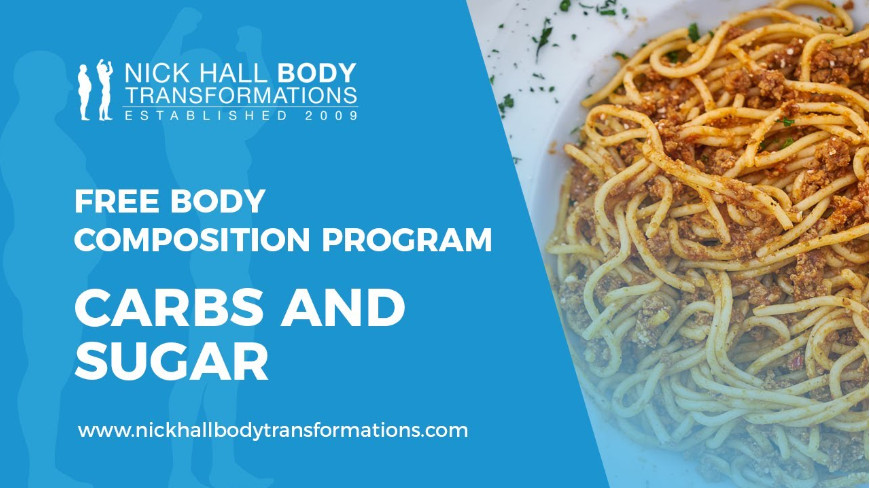we delivers enough to blog about

Carbs and Sugar
In this post I’ll be discussing carbs and sugar. We’ve been told for a long time that processed carbs, starchy carbs or sugar will elevate your blood glucose which will then lead to insulin resistance and fat storage.
We’ve also been told you can’t consume carbs after lunch or night as we won’t burn it off while we sleep and it will be stored as fat.
We’ve also been told not to eat carbs in the morning as our hormonal profile in the morning is more geared to storing fat from carbs.
We’re rarely told that the real problem is calorie balance. The problem with starchy carbs, processed carbs and sugar are that they taste very nice, can be eaten in large amounts quickly and aren’t filling. Hands up who can eat a whole pizza or large bowel of pasta, feel full for five minutes the order dessert.
One study I want to bring to your attention that I have linked below is called Metabolic and behavioral effects of a high-sucrose diet during weight loss.
The study examined 20 women aged around 40 with a BMI over 35 which would be considered obese. The study looked at the effects of a high and low sugar diet when all other calories were equal. Both diets were 1100 calories: 11% fat, 19% protein and 71% carbs. The high sugar diet contained 43% total calories as sugar – the low sugar diet was 4% sugar.Both groups showed a decrease in weight, blood pressure, resting energy expenditure, urinary norepinephrine and blood fat. Both groups showed decreases in depression, hunger and negative mood.
Both groups showed increases in vigilance and positive mood. Results showed that the high sugar content in a low calorie, low fat diet did not affect weight loss, metabolism or blood fat levels.
Another interesting study titled Evaluation of the usefulness of a low-calorie diet with or without bread in the treatment of overweight/obesity. Both groups received a low-calorie diet, with or without bread designed to induce weight loss in overweight women. The bread group consumed 3 servings of bread per day.
The results were that the bread group lost an average of 4.3kg while the no-bread lost on average 4kg. The body fat percentage of the bread group dropped by 2.5%, the no-bread group dropped by 2.1%. There was no significant differences between groups in terms of improvements in blood lipids and glucose control. The no-bread group saw significant deviations from the total caloric target while no significant deviations were noted in the bread group.
In conclusion there is no problem in including bread as part of your diet providing you are in a caloric deficit. Furthermore, other foods containing sugar or carbohydrates can also be included as part of a refeed day or cheat meal, again provided you are still meeting your calorie requirements.
Our next blog post is on nutrient timing and the anabolic window which you can view here
References
Metabolic and behavioral effects of a high-sucrose diet during weight loss.
https://www.ncbi.nlm.nih.gov/pubmed/9094871
Evaluation of the usefulness of a low-calorie diet with or without bread in the treatment of overweight/obesity.
https://www.ncbi.nlm.nih.gov/pubmed/22209501
Comments are closed.
